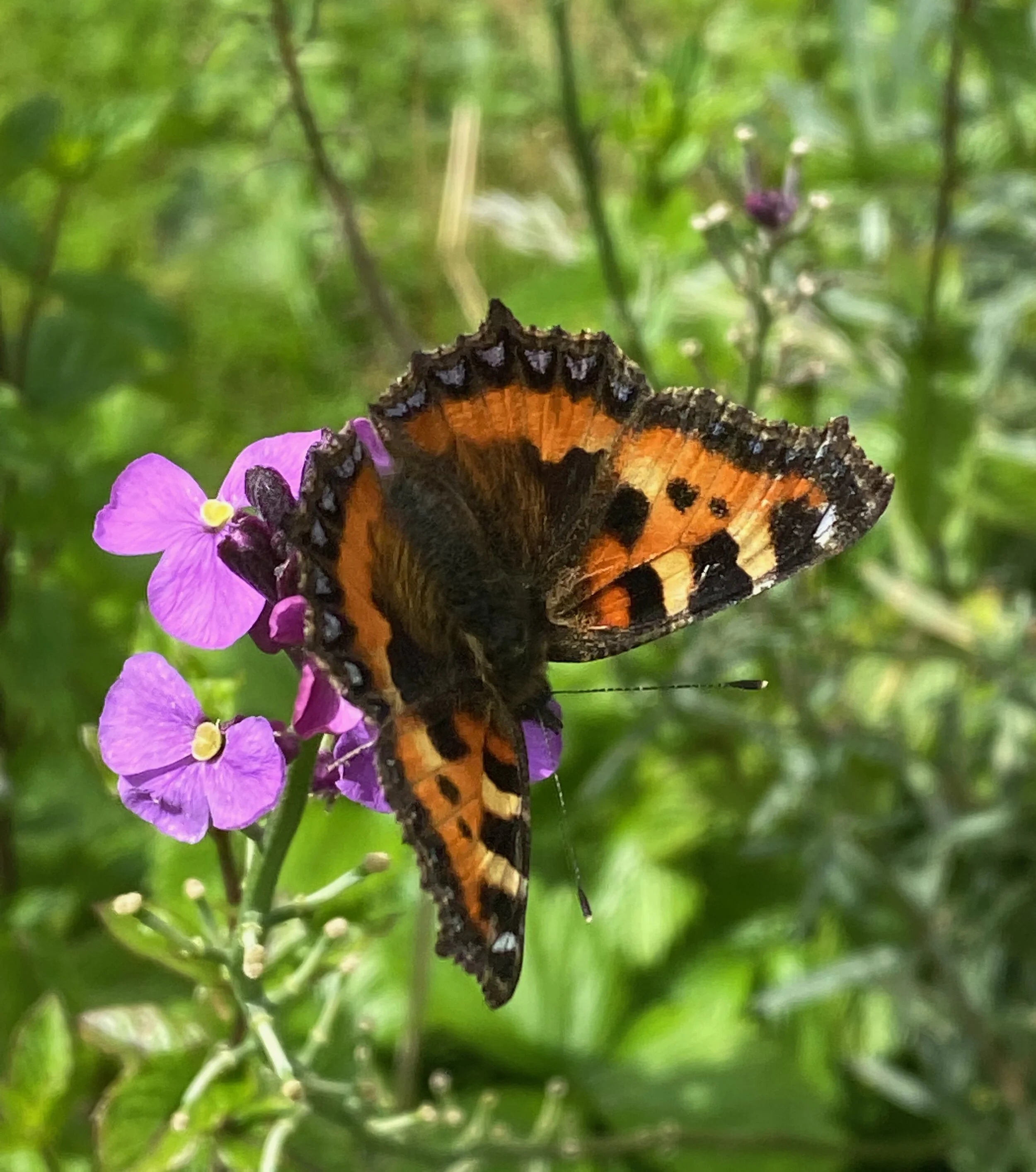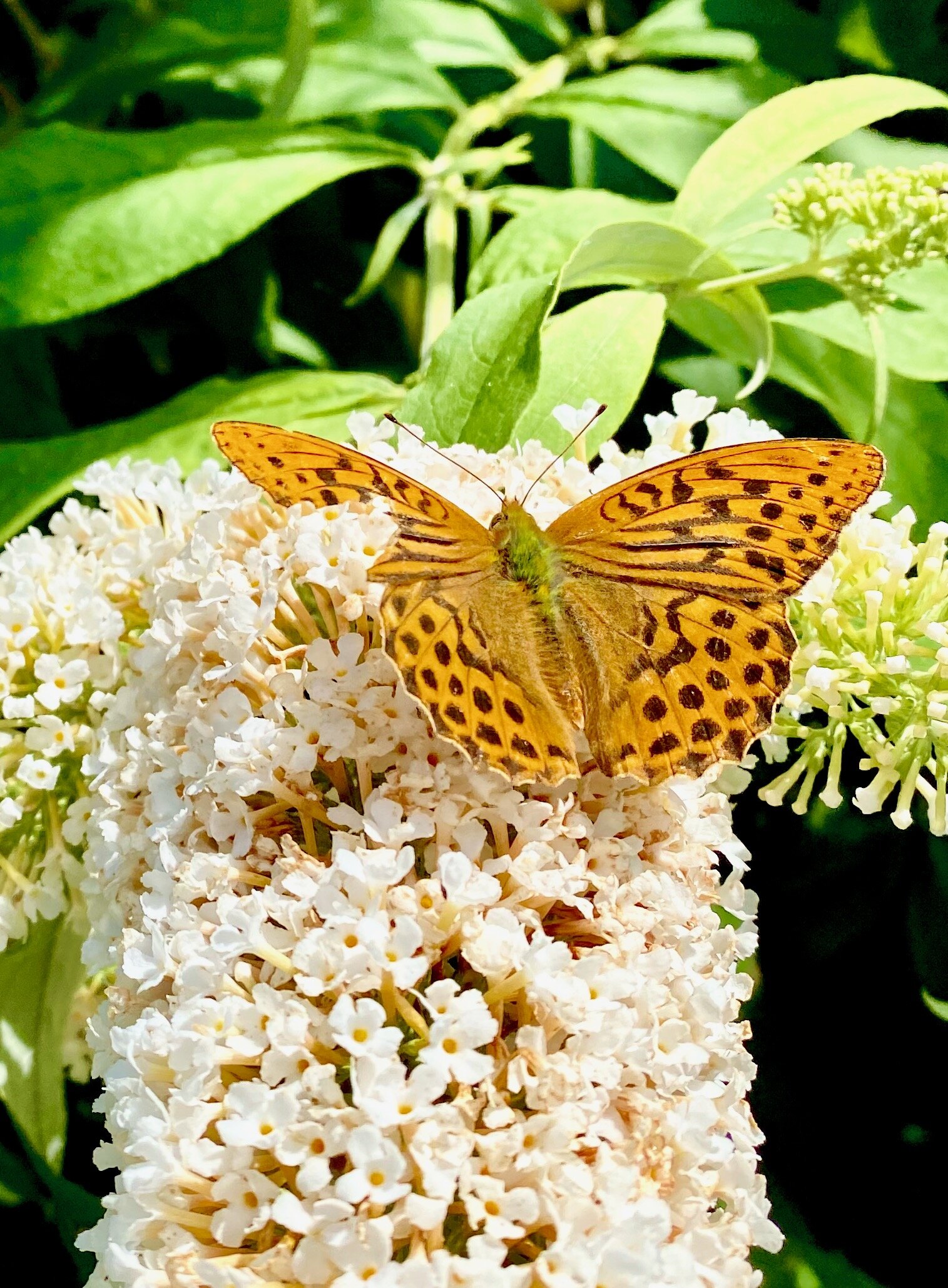Good Year for Butterflies In Our Valley
It’s been a good year for butterflies in our Exmoor valley.. That is not a statement of scientific fact, but just something I’ve noticed on my daily walks with the dog. These are just of a few of the photos I’ve snapped of butterflies with my iPhone.
The photo above is of a small tortoiseshell - and seeing it alright just a couple of feet from my computer in our outdoor office reminded me of an article I wrote for the Western Morning News just a couple of years ago, when the lovely small tortoiseshell was in trouble…
Indeed, at that time I recorded the interview which you can listen to below - having spent a delightful afternoon in fields high above Exeter with the charity Butterfly Conservation’s Richard Fox…
One of Britain’s best loved and most common butterflies has been hit by a massive decline in numbers and conservationists are asking anyone with a few minutes on their hands this Bank Holiday to go outdoors and look for the fluttering creature.
The beautiful small tortoiseshell is one of the most recognisable and widespread UK species and is a regular garden fixture in high summer. But this year, numbers have been worryingly low as the cool spring and slow start to summer appear to have taken their toll on the butterfly’s attempts to breed and feed.
“They’re definitely around right now, but in much lower numbers,” Dr Zoe Randle, of the Westcountry-based charity Butterfly Conservation, told me. “I’ve been doing butterfly surveys in Dorset for the past four summers and I’ve only seen half a dozen small tortoiseshells this year - two years ago you could count 40 in a day.”
She said the butterfly had endured a “tumultuous recent history”. Its population had plummeted by 73 percent since the 1970s, but in more recent times it had seen its numbers rise…
“Hopes were high that it was on the path to recovery,” said Dr Randle. “But this summer’s poor showing could mean the small tortoiseshell is set for yet more years of decline.”
The article went on to talk about the fact that Butterfly Conservation was asking people to look out for the species by joining the Garden Butterfly Survey to help build a picture of what is happening.
The charity’s Devon-based head of recording, Richard Fox, said: “We don’t understand what is causing the drastic long-term decline of this familiar and much-loved butterfly. Theories involve climate change, pollution and parasitic flies that kill the butterfly’s caterpillars, but we need more information.
Peacock butterfly in my valley
“If you see small tortoiseshells or any other butterflies in your garden, the Garden Butterfly Survey provides an easy way to enter your sightings, contribute to citizen science and store your records for posterity.”
Butterflies are important indicators of the health of the environment. By helping them, gardeners can help create a better home for wildlife, especially beneficial insects such as bees that play a vital role in pollinating wildflowers and many crops.
The UK’s estimated 22 million gardens represent an area roughly the size of Somerset and, at a time when butterflies are in severe decline, offer a potentially huge and vitally important habitat.
I think this is a pearl bordered fritillary
Ironically, one of the best things a gardener can do to help the struggling small tortoiseshell is to allow nettles and brambles to grow in wild corners.
“The caterpillar of the small tortoiseshell feeds on nettles in spring, then nectar plants are obviously important for butterflies in summer,” said Dr Randle. “Granny’s bonnet campion, wallflowers comfrey and late summer brambles are all favourites of the small tortoiseshell.”
Butterfly sightings can be entered online at www.gardenbutterflysurvey.org










